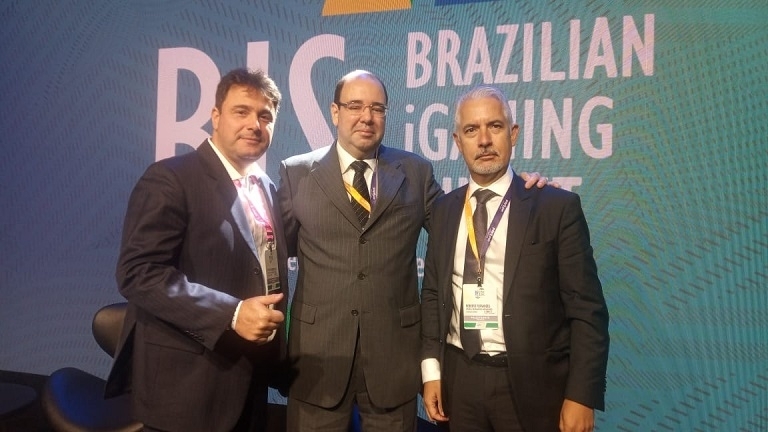

The Lottery is a public institution focused on generating resources for social application. This is a function of the State and must be understood in this way, said Brasil Fernandes about the basic concept of lottery operation around the world.
“The risks of operating sports betting, linked to state lotteries, must remain with the operators and I defend that the division of powers between the Union, States and Municipalities be respected. It is only up to the states to regulate their lotteries, not distancing themselves from the Union regarding federal legislation, but not to the municipalities, which, in my understanding, would not have such competence,” said Brasil Fernandes.
In view of this, the sector's concern is regarding the creation of municipal lotteries, as well as the implementation of sports betting by the states.
Marcello Corrêa explained that there is no hierarchy in the federative entities, but specific competences. "In the case of lotteries, the Union is exclusively responsible for the legislation on the subject, leaving the States with the competence of the operation based on federal legislation."
“When the STF said that there was no exclusivity for the Union, it opened the possibility for municipalities to understand that they could have their lotteries,” said Witoldo Hendrich, in which Brasil Fernandes spoke about this not having constitutional support, “because residual competences do not apply to municipalities, which could only benefit from the resources of the Union and States in the operation of lotteries.”
For Witoldo, “one of the big problems in Brazil is the flood of court injunctions asking for this or that. It takes a lot of analysis on the part of the lottery industry to qualify with the municipalities, since the issue still leaves doubts as to its legality.”
Luiz Felipe Maia commented that the judicialization of the lottery issue is regrettable. “What the federated entities need is to adopt dynamics already accepted in the legislation. The lottery industry has a lot to contribute to Brazil and it's all a matter of proper analysis of the competences of each entity and seeking the best international practices,” he said.

The regulation of sports betting, in the opinion of the panelists, is what will define how lotteries will explore such activity. “In relation to state lotteries, Brazil is a gigantic country and given its peculiarities, all international players must be aware of how to settle in Brazil and what to explore,” commented Luiz Felipe Maia.
“It is the competence of the Union to regulate sports betting and the States will be able to follow federal decisions to implement sports betting when regulating and defining the way in which the activity will be explored, not leaving aside the processes of creating their lotteries as well as bidding the way in which the bets will be operated,” explained Brasil Fernandes.
“It is essential that States understand the mechanics of operating lotteries and how they can implement sports betting in their jurisdictions,” concluded Marcelo Corrêa.
Source: Exclusive GMB